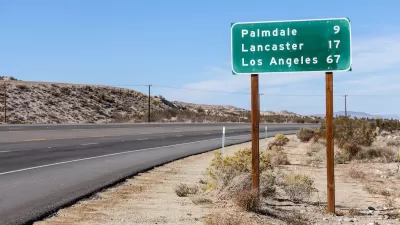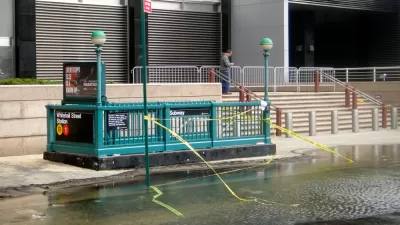The escalating health impacts of climate change, from extreme heat to sea level rise, highlight the urgent need for integrated medical education, proactive communication, and sustainable policy solutions to protect public health.

As climate change intensifies, its wide-ranging health impacts demand urgent attention, particularly as extreme weather events and environmental changes disrupt public health systems. Medical schools in the U.S. are increasingly integrating climate-related health topics into their curricula, recognizing the need for future doctors to identify and treat climate-driven health issues. Communication strategies for educating the public emphasize trusted sources, narratives, and actionable insights to inspire climate-friendly behaviors. Economic losses from extreme weather have reached $227 billion since 2010, underscoring the need for proactive measures to mitigate risks and reduce emissions.
Extreme heat is emerging as a critical health challenge, with heat-related mortality among older adults increasing by 167 percent compared to the 1990s. Heat waves not only exacerbate chronic health conditions but also disrupt sleep, physical activity, and food security. Agricultural workers face heightened risks from rising temperatures, affecting crop reliability and prices. Meanwhile, urban areas are grappling with the heat island effect and power grid stress, prompting cities to explore innovative adaptation strategies to safeguard public health and infrastructure.
Infectious diseases are also being reshaped by climate change, with rising temperatures expanding the geographic range of vector-borne diseases like dengue and malaria. Zoonotic diseases are increasing due to altered ecological patterns, while antibiotic-resistant bacteria and food-borne illnesses are becoming more prevalent. Wildfire smoke, another escalating concern, poses widespread health risks even in regions far from active fires. It contributes to respiratory and cardiovascular conditions and strains healthcare systems during wildfire seasons, with long-term effects particularly concerning for vulnerable populations.
Sea level rise and standing water further amplify health risks, displacing coastal populations and contaminating freshwater supplies with saltwater. These changes disrupt sanitation systems, increase exposure to waterborne pathogens, and disproportionately affect low-income and vulnerable communities. Concurrently, air pollution from fossil fuels continues to impact health, though transitions to clean energy have shown immediate benefits such as reduced asthma-related ER visits and lower preterm birth rates. Addressing these interlinked challenges requires robust action across health, environmental, and policy domains to ensure a sustainable and equitable future.
FULL STORY: Climate and health: Stories to watch in 2025

Alabama: Trump Terminates Settlements for Black Communities Harmed By Raw Sewage
Trump deemed the landmark civil rights agreement “illegal DEI and environmental justice policy.”

Study: Maui’s Plan to Convert Vacation Rentals to Long-Term Housing Could Cause Nearly $1 Billion Economic Loss
The plan would reduce visitor accommodation by 25% resulting in 1,900 jobs lost.

Why Should We Subsidize Public Transportation?
Many public transit agencies face financial stress due to rising costs, declining fare revenue, and declining subsidies. Transit advocates must provide a strong business case for increasing public transit funding.

Paris Bike Boom Leads to Steep Drop in Air Pollution
The French city’s air quality has improved dramatically in the past 20 years, coinciding with a growth in cycling.

Why Housing Costs More to Build in California Than in Texas
Hard costs like labor and materials combined with ‘soft’ costs such as permitting make building in the San Francisco Bay Area almost three times as costly as in Texas cities.

San Diego County Sees a Rise in Urban Coyotes
San Diego County experiences a rise in urban coyotes, as sightings become prevalent throughout its urban neighbourhoods and surrounding areas.
Urban Design for Planners 1: Software Tools
This six-course series explores essential urban design concepts using open source software and equips planners with the tools they need to participate fully in the urban design process.
Planning for Universal Design
Learn the tools for implementing Universal Design in planning regulations.
Smith Gee Studio
Alamo Area Metropolitan Planning Organization
City of Santa Clarita
Institute for Housing and Urban Development Studies (IHS)
City of Grandview
Harvard GSD Executive Education
Toledo-Lucas County Plan Commissions
Salt Lake City
NYU Wagner Graduate School of Public Service





























